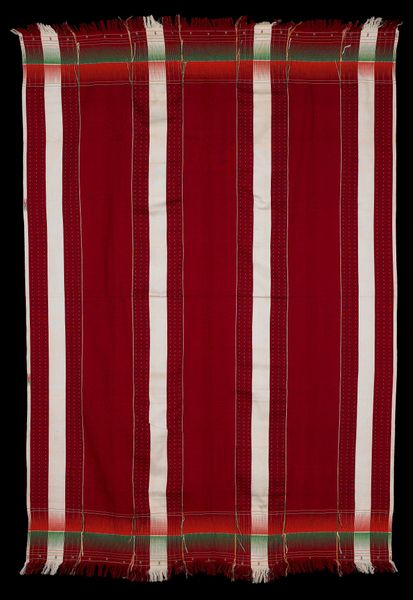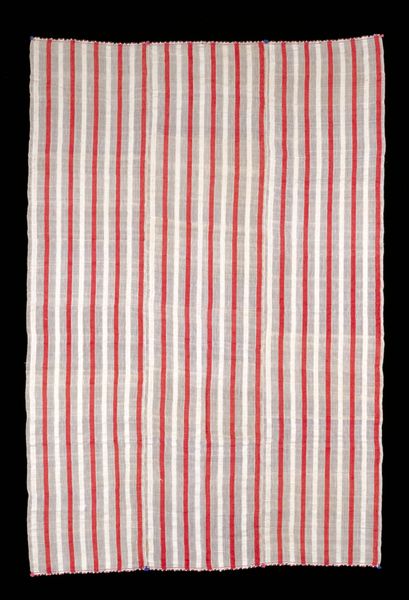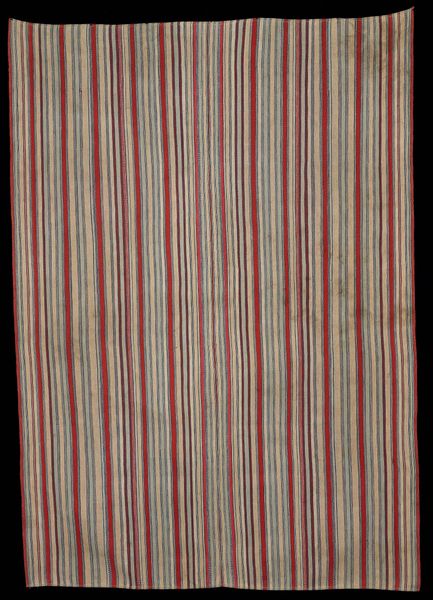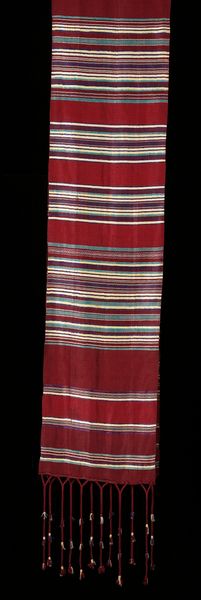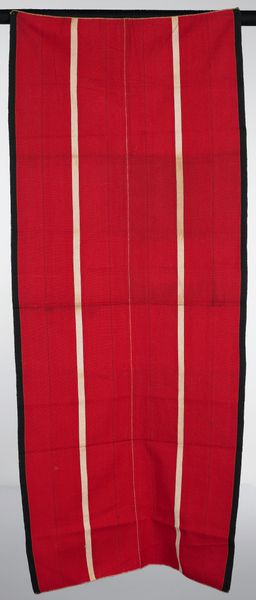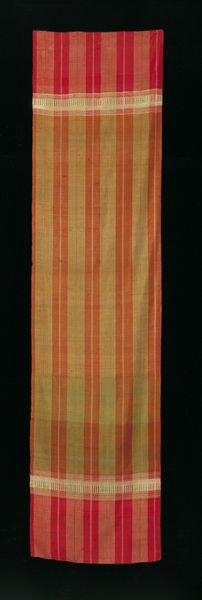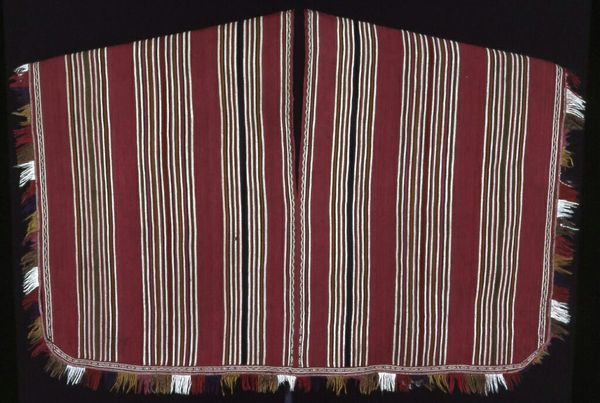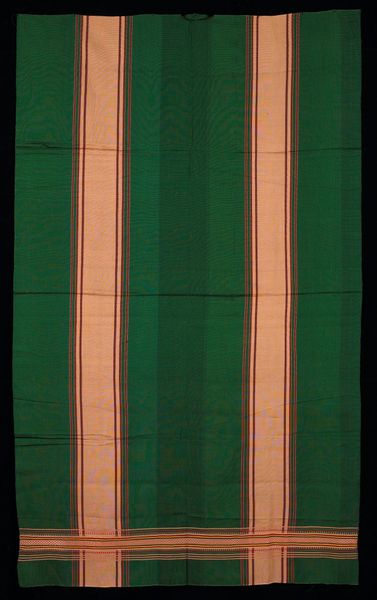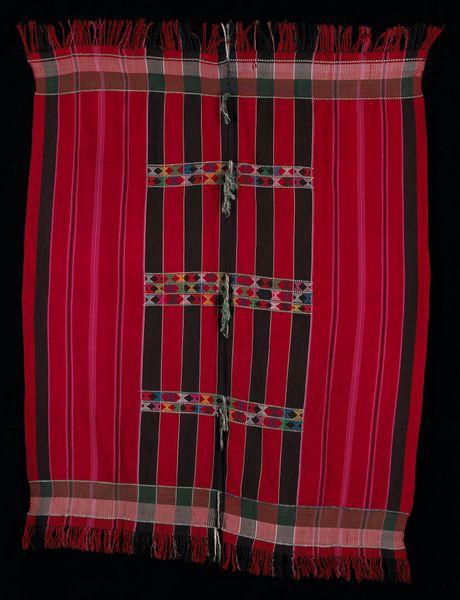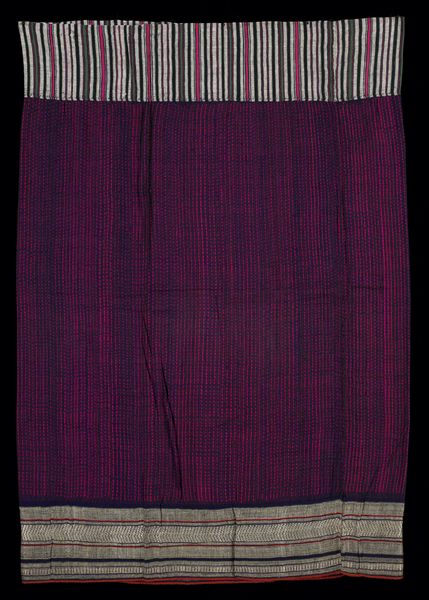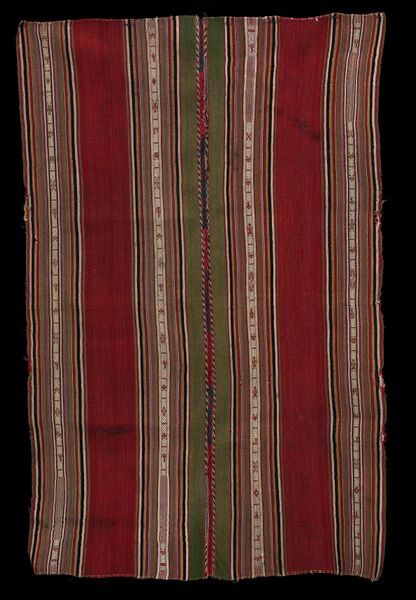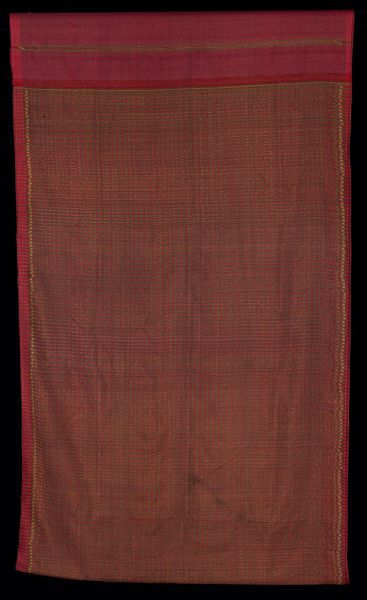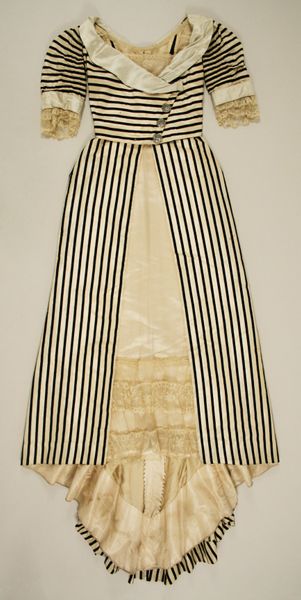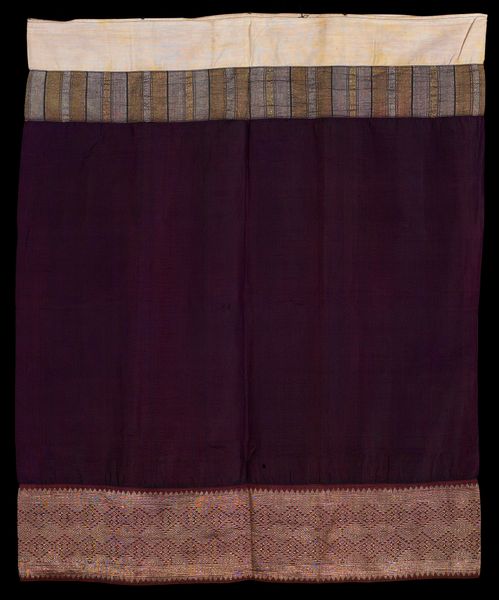
weaving, textile
#
tribal design
#
natural stone pattern
#
weaving
#
textile
#
fashion and textile design
#
geometric pattern
#
hand-embroidered
#
geometric
#
fabric design
#
pattern repetition
#
beaded
#
imprinted textile
#
layered pattern
Dimensions: 76 x 58 in. (193.04 x 147.32 cm)
Copyright: Public Domain
This is a man's wrapper made by Tang Khul Naga. The simple bands of red and white woven together speak to the important role of textiles in many cultures. Textiles such as this are more than just functional items of clothing. In many societies, they can be potent signifiers of identity, status, and group affiliation. In pre-colonial societies, textiles were often used as a form of currency or tribute, as well as being important trade commodities. Production techniques and design motifs carry cultural information and can reflect specific historical, geographical, and social contexts. By studying the materials, techniques, and patterns, we can learn a lot about social structures. Understanding the wider economic and social history of textiles is crucial. A globalized trade in textiles, with the industrial revolution and the opening of new markets, changed social habits and local production. Further research into the patterns and materials of this particular textile could reveal a more precise dating of its creation, as well as the ways in which cultural exchange occurred.
Comments
No comments
Be the first to comment and join the conversation on the ultimate creative platform.
